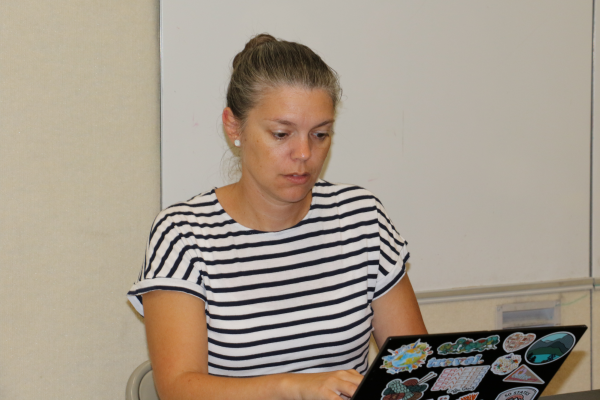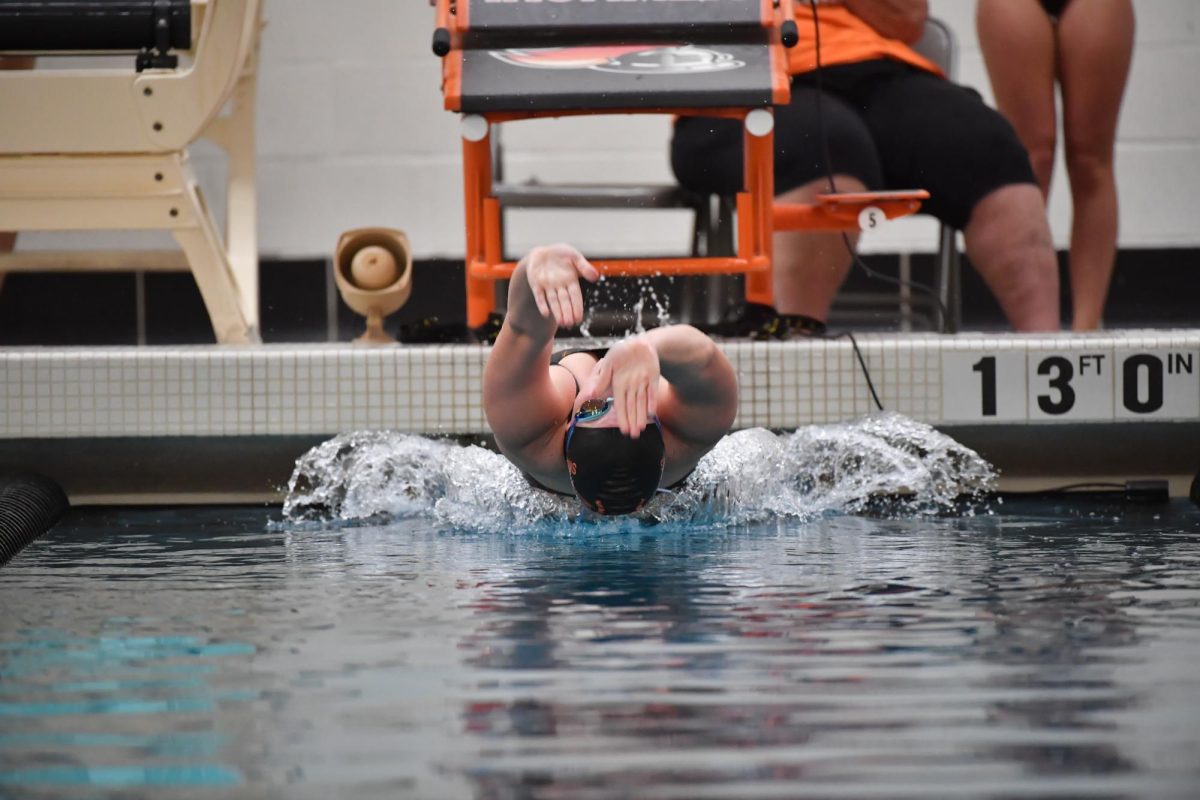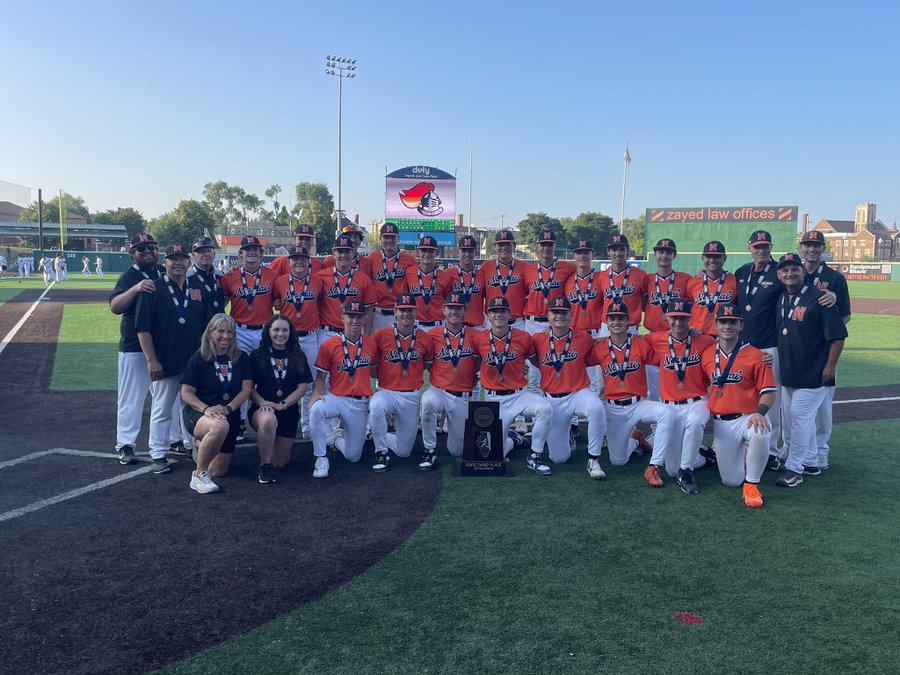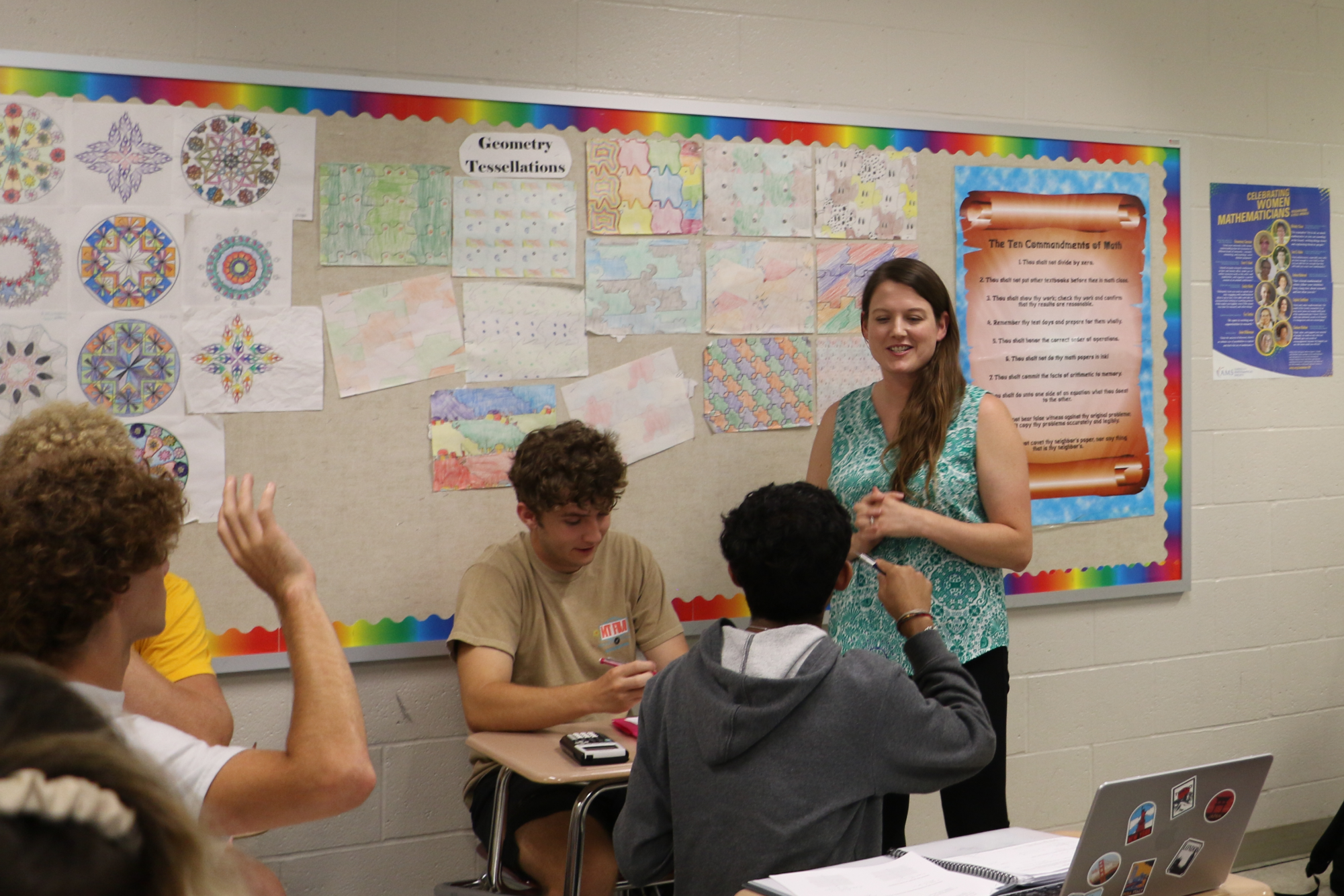The foreign language and math departments welcome new leadership for the 2024-25 school year after the retirement of department chairs Mrs. Mary Esther Baldwin and Mrs. Amy Feeney.
Seventeen-year French and German teacher Ms. Mirjam Schnabel replaces Baldwin, who has served as foreign language department chair for 13 of her 26 years teaching at Community. In Feeney’s place, Mrs. Kate Lawrence helms the math department.
Schnabel and Lawrence each have in-depth knowledge of their departments’ curriculums. Schnabel has taught half of the school’s foreign language courses—thanks to her double major in French and German—and Lawrence has taught “almost all” of Community’s math classes.
Although new chairs must achieve a host of requirements, Baldwin said—a successful interview with administrators and department members, four “excellent” grades on teaching evaluations and a master’s degree, to name a few—Schnabel and Lawrence were already in the pipeline for department chair positions when the roles became available.

“Even before [Schnabel] officially got the job,” Baldwin said of the foreign language chair role, “I just knew it was going to be her.”
A consistent key contributor in the department’s decision-making processes, Schnabel prepared for her role by attending chair meetings alongside Baldwin while also leading the transition to standards-based grading in foreign language.
The grading scale shift has given Schnabel experience with far-reaching issues, she said, because “it affects every single course and every single teacher”—as well as every test and assignment in each course.
“It’s a lot of work, it’s a lot of tiring work, and then how do you guide everybody through that process?” Schnabel said. “It can be very frustrating, but it also has to be done.”
Schnabel anticipates her willingness to persevere through those frustrating challenges like standards-based grading will serve her well in her new leadership role.
While “it’s easy to be a leader when everything is working well,” Schnabel said, true leaders emerge “in difficult times.”
“My hope is I’ll be able to be that person to say, okay, this happened, and this is bad, but how do we move forward?” Schnabel said.
Lawrence shares Schnabel’s readiness to tackle obstacles after years of participation in math task forces, curriculum authorship and teacher mentorship.
An avid reader, Lawrence frequently consumes literature on how math is taught—meaning ‘new’ practices like standards-based grading, which Lawrence said predated the twenty-first century, weren’t new to her at all.
When something is “coming my way, and I’m not sure how I feel about it,” Lawrence said, “being informed and knowing what different approaches are” has always helped her considerably.
As math chair, that awareness will be instrumental in guiding a department so dense with AP and dual credit course options—and therefore so divided between traditionally and standards-based graded classes.
But continual shifts in assessment techniques aren’t the only volatile aspect of Schnabel’s and Lawrence’s positions.
Class schedules, which each department chair complete with associate principal Mrs. Courtney McClure annually, require careful consideration of changing student and teacher landscapes.
Baldwin said creating the schedule is a balancing act between student demand and what teachers tend to excel at. Some foreign language teachers prefer to teach lower levels, for example, while others prefer more advanced classes.
For Schnabel, staff turnover and the imminent restoration of junior high foreign language instruction will create more scheduling to-dos than usual.
On top of welcoming three new department members this year following Baldwin’s retirement and other staffing shifts, Schnabel must work with West’s foreign language chair to determine how the subject can feasibly be re-incorporated into junior high students’ schedules beginning in 2025.
Having already secured eighth grade foreign language for the 25-26 school year, Baldwin wants to see Schnabel and her colleagues reinstate seventh grade foreign language instruction down the line, too.
Despite the added curricular work, Schnabel supports the mission to split level one across two years—seventh and eighth grade—in the near future.
“If you split it over two years,” Schnabel said, “you can tailor it a bit more to the brain development of a seventh and eighth grader.”
With more time to spend on enrichment activities and songs, Schnabel said of Unit Five’s previous seventh and eighth-grade model, students’ “foundational knowledge of the language was a lot stronger than our students who took year one at the high school.”
That foundation will prove valuable to students when another logistic challenge presents itself to Schnabel in a few years: a new Illinois graduation requirement mandating students take at least two years of foreign language.
Taking effect for students entering ninth grade in the 28-29 school year, the increased foreign language enrollment will likely necessitate more teachers and amplify the department chair’s interview responsibilities, Schnabel said.
With the new requirement, the junior high to high school bridge in foreign language also becomes as valued as it is for ‘core’ subjects like math—a subject for which Feeney said Unit Five is hiring a curriculum coordinator to help smooth the transition to high school.
Working with this coordinator will be added to a long list of responsibilities for Lawrence—who, like Schnabel, must also manage the department’s budget, represent the department in meetings and maintain records of curriculum maps so new teachers never come in “cold turkey,” Baldwin said.
But behind the tedium of administrative tasks is a “loyal” and ambitious group of people whom Lawrence said she is excited to serve.
“They’re really interested in making sure we’re all learning math in the building,” Lawrence said. “Not easy math, but pushing everybody.”
Although it’s “crazy to think” she is among the oldest in this young group of math teachers, Lawrence said, she knows her experience and existing familiarity with staff proceedings—she witnessed Feeney’s own instatement as the math chair years ago, after all—will make her a reassuring figure.
“I can represent everybody, and mama bear them pretty well,” Lawrence said. “We’re kind of like a cute little family.”
A family that hasn’t lost Feeney, who Lawrence said “will be like our math grandma,” just yet—because the veteran teacher has been there for every step of the transition.
Feeney “very deeply cares about [this] year, and she’s big shoes to fill,” Lawrence said. “She’s an icon, a math celebrity.”
The foreign language equivalent, Baldwin, is keeping a close eye on her own department moving into this year, too.
When Baldwin substitute teaches, she said, she will speak up if she doesn’t hear district plans to add junior high foreign language progressing.
“This is one of my last battles,” Baldwin said, “and I think I’ve done what I can.”
Apart from the weight of that final battle, Baldwin leaves with confidence about the leadership transition.
“Schnabel is very well-known in the building,” Baldwin said, “so it shouldn’t be difficult. There just won’t be as much fun at the building chair meetings because I always throw out a joke or two.”


![Community honors longtime coach Mr. Bryan Thomas before Oct. 3 game [photo gallery]](https://nchsinkspot.com/wp-content/uploads/2025/10/Thomas-6-1200x1200.jpg)


























![Week 7: Coach Drengwitz recaps the Ironmen’s win over Bloomington, talks Danville [video]](https://nchsinkspot.com/wp-content/uploads/2025/10/Vikings-feature-Image-1200x675.png)

















![Halloween candy cross section quiz [quiz]](https://nchsinkspot.com/wp-content/uploads/2022/10/Candy-cover-big-900x675.png)
![Average Jonah? [quiz]](https://nchsinkspot.com/wp-content/uploads/2022/05/average-jonah-900x600.png)







![[Photo Illustration]](https://nchsinkspot.com/wp-content/uploads/2025/09/trigger-words.png)










![Week 5: Coach Drengwitz previews the Ironmen’s matchup vs. Peoria Manual, recaps Week 4 [video]](https://nchsinkspot.com/wp-content/uploads/2025/09/Week-5-v-Rams-1200x675.png)





![Postgame reaction: Coach Drengwitz on Community’s 28-17 Loss to Kankakee [video]](https://nchsinkspot.com/wp-content/uploads/2025/09/Week-4-postgame--1200x675.png)
![Week 4: Coach Drengwitz previews the Ironmen’s matchup vs. Kankakee [video]](https://nchsinkspot.com/wp-content/uploads/2025/09/Ironmen-v-Kankakee-video-1200x1200.png)
![On the Spot: This or That – Halloween [video]](https://nchsinkspot.com/wp-content/uploads/2024/10/tot-Halloween-YT-1200x675.png)
![On the Spot: This or That – Fall favorites [video]](https://nchsinkspot.com/wp-content/uploads/2024/10/ots-fall-web-1200x800.png)
![On the Spot – Teachers tested on 2023’s hottest words [video]](https://nchsinkspot.com/wp-content/uploads/2024/01/On-the-Spot-Teachers-tested-1200x675.png)








